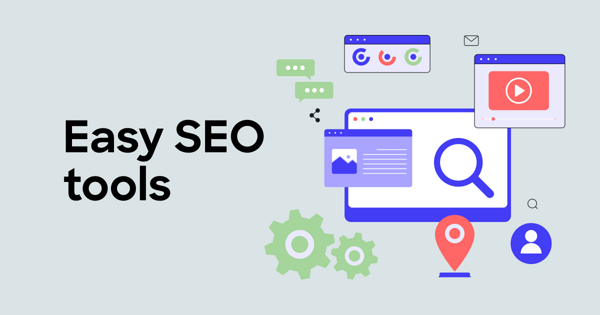It won’t surprise you to hear that one of the most popular questions asked in search engines on the web is how it is possible to make money online from a blog or website.
While producing web content might be fun, the chances are that if you have visited the blog of a popular website builder, you’re looking to build a site for your business, or at least something that draws in the views due to its ease of use and great look.
Whatever the case, why not also try to make money with your website? Here’s how you can do it.
Google AdSense and other online ads
The most popular way of monetising web content is using online ads programs like Google Adsense. This, when you enable it to do so on a given webpage, will show advertising for one of a large number of potential advertisers to end users. Like everything on Google, AdSense works algorithmically, choosing adverts that fit your content as closely as possible, and filtering those ads so that the highest paying adverts are the most likely to appear on your pages.
Try Voog for free today - Increase your online revenue with great site design!
In this way, if you use AdSense, you had better make sure that your site’s SEO is sound. We have written previously about how to optimise your website so that it appears on the right searches, and appears high enough on searches for certain keywords that matter to the field in which your business operates. If your SEO is not sound, then likely you will find that the ads that AdSense sends to you will be the wrong ones for you, and may even alienate your audience.
Getting your SEO sorted out will help direct the right ads to your site
The same applies if you use other ad providers, such as Infolinks and Adsterra. These are all designed to send the ads to your site that seem like the best fit — they can only do that if your site helps them by being clear about its focus and who it is aimed at. Leverage a strategic asset, such as a revenue growth planning tool, to help you track your investments, monitor ROI, and scale your business faster.
Affiliate marketing
The thing about affiliate marketing is that it’s still such an underrated way of monetising your website. Most people don’t see the significant gains that can be made from offering your voice to recommend products from all kinds of industries.
One of the most popular forms of affiliate marketing is online gaming (gambling) affiliate marketing, in poker, casino, and sports betting. This is because everyone likes to relax with a game from time to time, and there are thousands of gambling sites to choose from, most of which have an affiliate programme that might suit you. However, if you don’t fancy gambling, you can find affiliate marketing programs for everything from airlines (for example Finnair) right through to sports equipment.
Many brands want to be associated with trustworthy and frequently visited sites, and so if they see a mutual benefit to working with you, they will make it easy for you to join their affiliate program.
All affiliate marketing sites offer either CPA (cost per acquisition) or revenue share arrangements to pay publishers; sometimes they use these in a hybrid arrangement, involving a little of both. Revenue share means you get, literally, a percentage of the amount the website earns from a player or user you attracted to the site. CPA means that the advertiser will give you a predetermined amount if you persuade a user to sign up with an account to their website, and also often complete a series of actions such as making an initial purchase.
Product reviews
A more personalised method of monetising your web content is to review products, either on behalf of sponsors, or for products that you know will generate a lot of interest in the review. A good example of this could be the latest smartphone: there is a huge amount of interest in new products in the tech world, and anyone with an advanced example of a new phone is almost guaranteed to garner interest for what they have to say about it.
There are several ways to monetise this content: the trickiest, potentially, would be to negotiate a deal with the manufacturer of the smartphone to do a sponsored review. If you did this, you would need to be completely honest with your audience, so they didn’t think they were getting a neutral review. Ideally, you should post a disclaimer at the top of your content, saying that it is a paid partnership – but many influencers and bloggers fail to do this, which while not always strictly against the law of their territory, is a betrayal of the trust of their audience.
Choosing a popular product for review will draw more attention due to the brand name alone
Another way, which just requires you to have the product in question – whether a test version or your own one – is to do a review which you will not earn sponsorship money off directly, but will earn you money when people visit your site to read it. If you write about a product that can pull in a wide audience, meaning they then click on your other, directly monetised, content, or on your online ads, you can make this work. When they’re on your page, reading about the exciting new product, you can draw them in with other things that may interest them, raising your own revenue in the process.
ebook
It requires you to already have quite a high profile because of respected content, but if you have enough to say, and you’re confident and proficient enough at structuring it, you can make an ebook. What’s great about these is that they give you an additional revenue stream that wouldn’t be there otherwise, and it allows you to leverage your loyal readership, giving them more of the material they already love. Another great thing is that books are easy to make and distribute, so you needn’t spend any money to get it on the market.
If you’ve already won people over with your content on your website, an ebook will extend your personal brand, and also allow you the chance to get people to pay for something they might not ordinarily.
Remember that there’s no point writing an ebook if your reason for writing it is not sound; while it can be a strong money-maker and can draw new fans to your site, writing an ebook is hard work, and there are so many bad ones on major download sites now that any new publications have to add something new that people do not already have from what is available.
Webinars, podcasts, and online courses
It’s likely that if you have ever been onto the website of SEO guru and all-round website-whisperer Neil Patel, you’ll notice how many calls to action he throws at you before you read the article you went to his page for. Not only is there a pop-over ad for his ebook and his newsletter, there are also copious promotions for other content he has produced, all around his page.
This could be seen, in some hands, as annoying, but Patel has clearly made the decision to lean into this approach to website-building, and considering his userbase, it’s an approach that would appear to work. While Patel’s site is a little bit ‘busy’ for our liking (it can be hard to focus on reading the actual article), he is an optimisation expert, and he’s practising what he preaches in that regard.
The reason we bring up Patel’s site is because it shows how, when someone has a seriously substantial body of content, they can leverage that in a multitude of different ways. Patel produces the full gamut of online content, with articles leading to ebooks, webinars, and podcasts. His end users appreciate his informal, accessible style, while those who happen upon his work having typed in a Google search are highly likely to stay to check out some of the other interesting things he has written or talked about.
You can do the same. If you have experience or expertise in some area, use that.
Create regular podcasts that people can find on their favourite platform, that are also available through your site. Perhaps offer an online course for a small payment, where you show users how to resolve a particular issue that many people commonly have. If you want inspiration on what kind of course to offer, go to Udemy, and look at what the most popular courses are there. You’re sure to get a few ideas.
Use your knowledge and experience to create content that gets people excited about your website
Webinars are online lectures, where the audience can also ask questions, usually done over a video call. They’re great for boosting engagement, and will also show you to be a major thought leader if done well. If you’re sure of what you’re talking about, offering webinars for a small payment can really help to monetise your content.
We hope we’ve given you some ideas regarding how to make money using your blog or website. Depending on the kind of site you’re running, certain methods will work better than others – but what’s true for them all is that if you’re committed to making your blog or site work, and you have a great Voog design, you’re halfway to making that profit.










